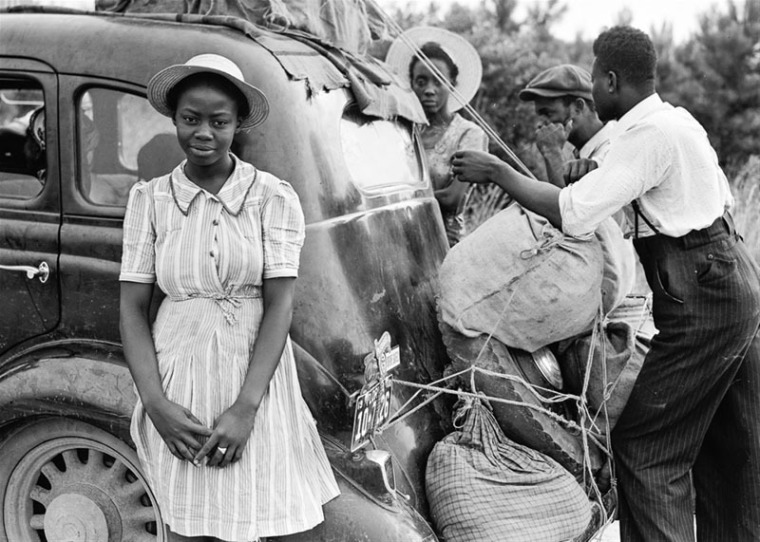
The USA has long fascinated me, and I have embarked on a series of reflections on culture in the USA, using American film or television as a prompt. This is the eight article and considers race.
There is no society without racial issues, though in times and places, racial matters are more prominent. Contemporary USA illustrates this with the context of American history and the Indian nations and institutionalised slavery.
This short article will consider African American or Black History.
Roots (1977)
This ground-breaking mini-series was the most talked about TV show during my mid-High School year. In hindsight, it is intriguing to reflect that there was so much fascination with black history in the USA when little interest had been shown then in Australian indigenous history.
Based on Alex Haley’s book Roots: The Saga on an American Family, this is the story of an African man taken to America and sold as a slave, and the generations following including the time of the civil war.
Haley would eventually become embroiled in a scandal over plagiarism with an out of court settlement with the author of The African. He also faced questions over genealogy and historical accuracy, but nevertheless the book and series became phenomenally successful in the USA.
It is estimated that over half the US population watched the series in the year of release. Character names from the series became famous: Kunta Kinte, Bell, Kizzy and Chicken George.
The History Channel remade the series in 2016, featuring English actor Malachi Kirby as Kunta Kinte and Laurence Fishburne as Alex Haley.
Glory (1989)
An early Denzel Washington film, Glory is a ground-breaking film for its examination of the distinctive role of the second all-black regiment in the Union army (though the commanders were white – this has raised some questions in recent years in terms of the focus of the film).
The moving scenes of their faith before the major battle are an extraordinary contrast to what they have suffered before. Denzel Washington (my second favourite actor) won the Academy Award for Best Supporting Actor, though he should have received the award for Best Actor.
Gettysburg (1993) and Gods and Generals (2003)
Almost a mini-series and with an ensemble cast, these two films tell another part of the story of the American Civil War.
One of my favourite actors, Jeff Daniels, in a supremely contrasting role to Dumb and Dumber, plays the key role of Union Officer Joshua Chamberlain in a poignant and respectful way.
Gods and Generals is an important film, particularly for the debate surrounding the film. It is the prequel to Gettysburg and follows General ‘Stonewall’ Jackson and the battle of Chancellorsville.
These films require a good deal of attention, running at over eight hours, but it is worth it for the overall understanding of the impact of the war in US history, and the issues that followed from the period of reconstruction.
There are some notable scenes that consider the issue of slavery, and the theological points made by Jim Lewis, Stonewall Jackson’s cook should not be underestimated, but it is important to note that Gods and Generals has provoked an increasingly contemporary debate about its more sympathetic portrayal of Southern military characters and concern about a ‘neo-Confederate’ context.
Marshall (2017)
An underrated gem, starring the late Chadwick Boseman (who was mentored by Denzel Washington), this film provides an insight into Thurgood Marshall, the first black Supreme Court Justice during the early years of his life as a civil rights lawyer.
Do the Right Thing (1989) and BlacKKKlansman (2018)
Two Spike Lee films, nearly 30 years apart.
Do the Right Thing is arguably his most important film, with Spike Lee also acting in the major character role of Mookie. Set in Brooklyn on a seemingly ordinary very hot summer day that culminates in violence, this needs at least two viewings to consider all the connections and issues raised. In recent years, the film has sparked questions about the portrayal of black women.
BlacKKKlansman is possibly Spike Lee’s best film and stars John David Washington (son of Denzel Washington) as Ron Stallworth, the first black officer hired by the Colorado Springs Police Department is significant for its unique story and approach.
There are some hilarious moments in a film that uses multi-level and lateral dimensions to highlight this immensely serious subject: the culture and influence of the Ku Klux Klan and wider racism.

Peter Bentley is a Sydney (Australia) based writer and commentator on church, media and cultural issues. He is a former President of the Australasian Religious Press Association.